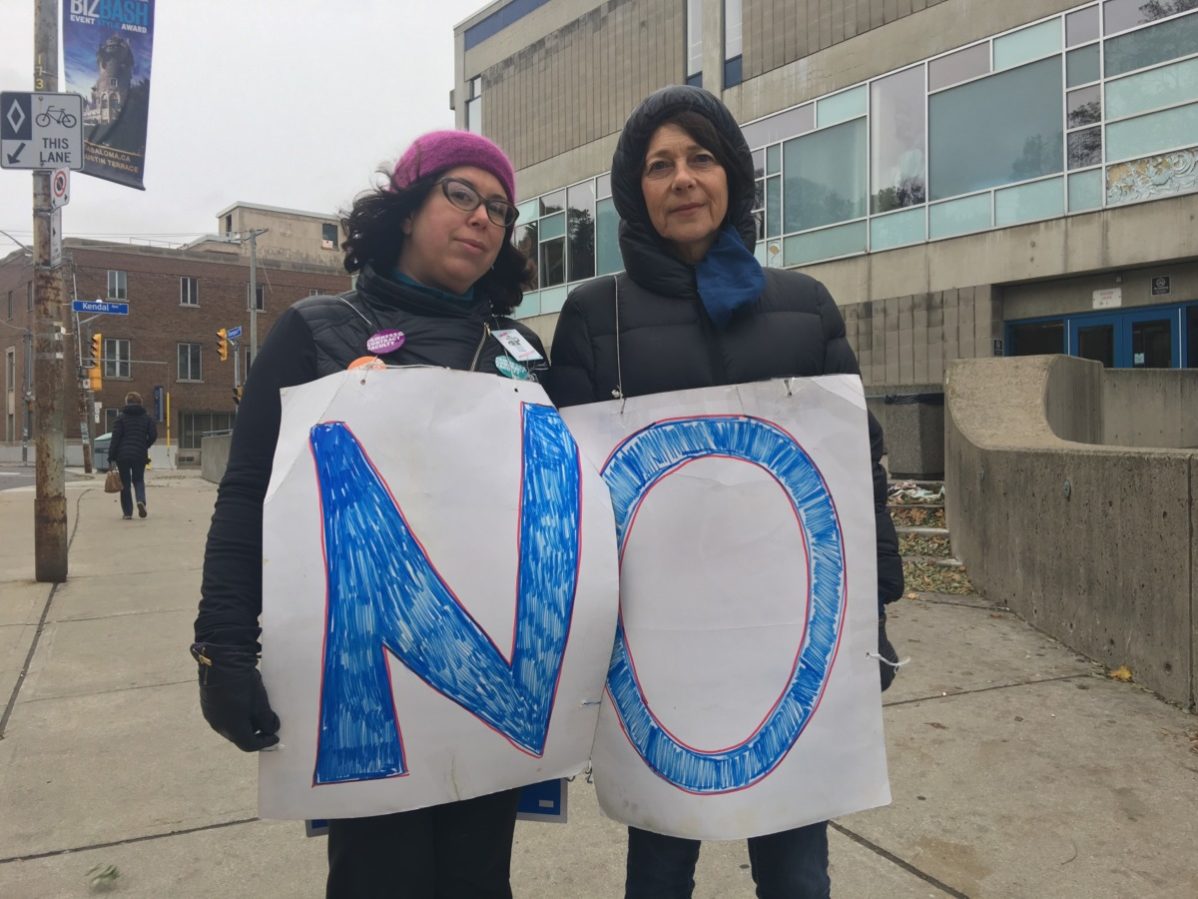Ontario college faculty reject colleges’ offer with 86% voting ‘no’
Updated 3:55 p.m.
Bargaining has resumed between striking college faculty, who have been on strike since Oct. 16, and the College Employers Council after a meeting with the provincial government this afternoon.
Eighty-six per cent of striking faculty voted against the offer by the College Employers Council (CEC) with a 95 per cent voter turnout, according to the union.
The union said that 10,477 faculty members voted no and 1,663 voted to accept the offer.
The Ontario Labour Relations Board is conducted the forced offer vote, which was a one-time only option under the Colleges Collective Bargaining Act.
“I expect that we will be back at that bargaining table immediately figuring out that settlement so we can get everybody back to class,” said JP Hornick, chair of the union’s bargaining team. “It will be incumbent on council that they hear this message loud and clear and they need to bargain and finish off this process quickly.”
“I completely sympathize with our students who have been caught in this strike for more than four weeks,” said Sonia Del Missier, chair of the colleges’ bargaining team in a statement. “This strike has gone on for too long – and we still need to resolve it and get our students and faculty back in class.”
During question period at Queens Park today Ontario Premier Kathleen Wynne said that the government was going to speak to both the union and the College Employers Council to “resolve this situation immediately and get students back to class where they belong.”
The union representing faculty had recommended that members vote against the offer, saying that it would take away their ability to force the colleges to post for full-time positions when non-union employees fill in as sessional and allow for unlimited overtime affecting the number of full-time jobs.
“I’m happy (about the vote) because it indicates to the CEC that they have to deal with us,” said Gilles Brochu, a professor at George Brown College’s electrical apprenticeship program. “The issue is about increasing the percentage of full-time faculty to 50 per cent. Having people who have been here five, six, seven, 10 years, make them full-time faculty so they can enjoy a proper pension later on in life.”
Laurence Boucher is a part-time marketing professor at George Brown who has taught since 2008.
“I’m sad that we didn’t reach an agreement sooner, I’m sad that the students are out,” said Boucher. “But I’m happy that so many people voted and so many people voted for change.”
Another sticking point was academic freedom, the union had wanted an academic freedom clause added to the collective agreement while the colleges wanted each individual college to draft an academic freedom policy.
A statement from the union before the vote was counted said “academic freedom is all about making education better by listening to all the voices in our college community, not just the voices of administrators bent on cutting costs.”
The offer from the colleges that faculty voted on included setting up a provincial task force which will be facilitated by the Ministry of Advanced Education and Skills Development. Along with the ministry, the task force will have representatives from the College Employers Council, the college faculty and support bargaining units, students and employers.
As per the colleges’ offer, the task force will make recommendations on staffing models, including faculty complement and precarious work, student mental health and labour-market readiness, academic governance structures and intellectual property issues. The ministry would also be obliged to put the recommendations to cabinet for funding consideration.
Yesterday students rallied at George Brown College in support of striking faculty.
“The government is doing nothing to help us (students). We’re paying thousands of dollars to not get education right now and college faculty has been exploited”, said Centennial social worker student Ashlyn Frost at the rally.
On Friday, the ministry announced that they will be requiring colleges to create hardship funds for students who have experienced financial hardship.
In an email to students, George Brown president Anne Sado said that she had hoped that there would be a resolution to the strike by now. She added that the college does prepare contingency plans, but cannot commit to “exact dates” until the strike is over.
Previously, the college announced the extension of the fall semester until Dec. 22 and cancelled the winter intersession week.


